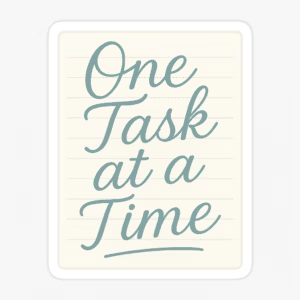Introduction
Life is full of big dreams—be it mastering a skill, achieving a fitness milestone, or building a successful career. But often, the enormity of these dreams can leave us feeling stuck or overwhelmed. The truth is, significant achievements are built on the foundation of small, obtainable goals. These manageable steps provide clarity, momentum, and measurable progress, transforming even the most daunting tasks into attainable realities.
In this article, we’ll explore why small goals matter, how they can help you achieve big results, and provide actionable steps to get started on your journey.
What Are Small Obtainable Goals?
Small obtainable goals are bite-sized, realistic objectives that move you closer to your ultimate ambition. Instead of focusing on the overwhelming end result, they emphasize achievable actions you can take in the present.
For example, if your goal is to run a marathon, a small goal might be running for 10 minutes a day or signing up for a local 5K race. These steps keep you motivated and on track while preventing burnout or discouragement.
Why Small Goals Matter
1. They Build Momentum
Completing small goals gives you a sense of accomplishment. Each victory, no matter how small, reinforces your confidence and motivates you to tackle the next step.
2. They Reduce Overwhelm
Breaking a big task into smaller parts makes it manageable. Instead of facing an intimidating mountain, you climb one step at a time.
3. They Create Consistency
Small goals promote regular effort, which is the key to building habits and achieving long-term success.
The Science Behind Small Goals
Research in psychology highlights the “Progress Principle“, which states that recognizing small wins boosts motivation and engagement. Studies also show that incremental progress helps people feel in control, reducing stress and increasing satisfaction.
According to Dr. Teresa Amabile of Harvard Business School, “Small wins can make all the difference in how people feel and perform.”
How to Set Small Obtainable Goals
Step 1: Define Your Ultimate Goal
Ask yourself: What do you want to achieve? Be specific about your big dream or vision.
Step 2: Break It Down
Divide your goal into smaller, actionable steps. For example:
- Big Goal: Deadlift 225 pounds.
- Small Goals:
- Deadlift 100 pounds
- Deadlift 135 pounds
- Deadlift 185 pounds
- Deadlift 2255 pounds
Step 3: Set SMART Goals
Make each small goal Specific, Measurable, Achievable, Relevant, and Time-bound.
Step 4: Track Your Progress
Use a journal, app, or habit tracker to monitor your achievements and reflect on what’s working.
Step 5: Adjust as Needed
If a goal feels too easy or too hard, tweak it. Self-reflection is key to staying aligned with your objectives.
Examples of Small Goals in Everyday Life
Health and Fitness
- Drink one extra glass of water daily.
- Take a 10-minute walk after lunch.
Career and Productivity
- Write one paragraph of a report per day.
- Organize one folder on your computer each week.
Personal Growth
- Read one page of a book daily.
- Spend 5 minutes journaling each night.
Overcoming Challenges
Staying Motivated
When progress feels slow, reflect on how far you’ve come. Celebrate small victories—they’re proof that you’re moving forward.
Adjusting Goals
Life changes, and so should your goals. If you find a step too difficult, make it smaller. Conversely, if it feels too easy, challenge yourself to aim higher.
The Power of Small Wins
Small wins compound over time, creating a snowball effect that leads to significant results. Imagine a software developer starting with one line of code. Over time, that single line becomes a fully functional product, as was the case in my own career. The same principle applies to every aspect of life—small efforts lead to big achievements.
Quick Takeaways
- Small, obtainable goals reduce overwhelm and build momentum.
- Breaking big dreams into small steps makes them manageable and achievable.
- Consistency is the key to long-term success.
- Use tools like habit trackers to stay on track.
- Self-reflection helps you stay motivated and adjust as needed.
Conclusion
Big dreams are exciting, but they’re built on the foundation of small, obtainable goals. By breaking down your ambitions into manageable steps, you can create meaningful progress and lasting change. Remember, the journey to success starts with a single step.
So, what’s your first small goal? Take that step today, and watch how it transforms your path forward. Share your progress in the comments below—I’d love to hear about your journey!
FAQs
- What are small obtainable goals?
Small goals are realistic, bite-sized steps that lead to larger achievements. - How do small goals help with motivation?
Completing small goals provides a sense of accomplishment, boosting confidence and momentum. - What tools can I use to track small goals?
Habit trackers, journals, and apps like Habitica or Todoist are great for tracking progress. - Can small goals help reduce stress?
Yes, breaking big tasks into smaller steps makes them more manageable, reducing feelings of overwhelm. - How often should I adjust my small goals?
Regularly reflect on your progress and adjust goals as needed to stay aligned with your abilities and priorities.
Future Reading
If you want to see what small steps look like. Compare my first article 5 Habits to Boost Mind and Body to this one. I feel this article is much better, I took my time, did research and built it sentence by sentence!
If you’re ready to take your first small step, why not make it visible?
Grab the “One Task at a Time” sticker — designed to keep you focused, grounded, and moving forward, one goal at a time.
🛒 Get the sticker on Redbubble →
📌 Stick it on your laptop, water bottle, or journal — a quiet nudge to keep going, even when the dream feels big.


Pingback: How to Manage Anxiety When Life Feels Out of Control - holistichabithub.com
Pingback: 10 Easy Wins: Small Victories That Build Big Momentum - holistichabithub.com
Pingback: Exercise for Self Care: How a Simple Nighttime Routine Helped Me Reclaim My Peace - holistichabithub.com
Pingback: How the OODA Loop Can Improve Your Mindset and Daily Habits - holistichabithub.com
Pingback: The Do Anything Mindset: How Small Daily Actions Create Big Change - holistichabithub.com
Pingback: Guide: What Are Adaptogens? - holistichabithub.com
Pingback: Back to School Mindset - holistichabithub.com